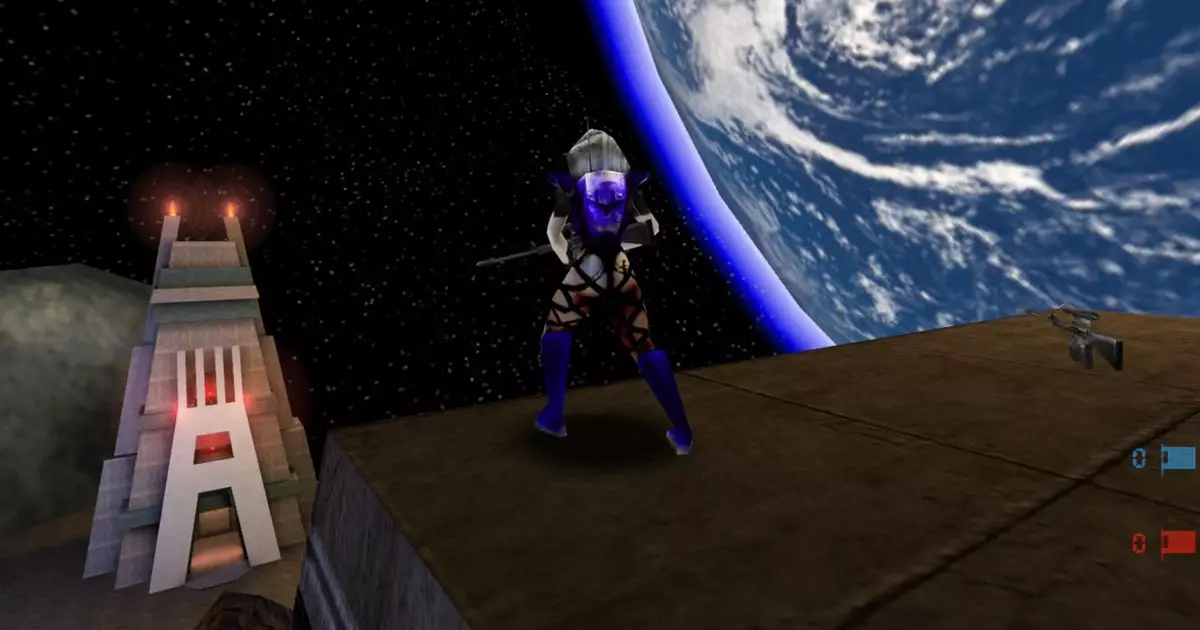In a significant move for both the gaming community and preservationist efforts, Epic Games has approved the hosting of their classic titles, Unreal and Unreal Tournament, on the Internet Archive. This decision not only allows players to access these iconic games for free but also plays a crucial role in preserving gaming history for future generations. These titles, initially released in 1998, have left an indelible mark on the first-person shooter (FPS) genre, influencing countless games that followed. By granting permission for their distribution, Epic has reinforced its commitment to acknowledging its past while embracing a future that values accessibility and preservation.
The Role of Community and Modding Groups
The fan group known as Old Unreal is taking charge in ensuring the straightforward installation and gameplay of these classics by providing user-friendly installers. Recognizing that the Internet Archive can be somewhat cumbersome for users unfamiliar with the interface, Old Unreal has created tools to simplify the process. These enhancements allow gamers to download and install both Unreal Gold and Unreal Tournament effortlessly, catering to a new generation of players and nostalgic fans alike. Such community-driven initiatives highlight the vital role that dedicated modding groups play in the preservation of classic games, offering expertise and resources often lacking in official outlets.
Unreal was not just a shooter; it was a revolutionary leap forward in graphics and gameplay mechanics at the time of its release. The game introduced players to vast, immersive environments and a variety of game modes that would become standard in subsequent titles. It famously featured the multiplayer map Facing Worlds, which has since become a legend in its own right, further solidifying Unreal’s place in gaming lore. This legacy continues to thrive, as the game’s unique mechanics and design philosophies still resonate within modern FPS titles.
Reactions to the Delisting of Unreal
In recent years, Epic’s decision to remove the original Unreal from platforms like Steam caused discontent among fans, particularly because the company launched its own store, vying for a competitive edge in the market. Some players felt alienated despite understanding the business strategy behind such a move. However, with Unreal and Unreal Tournament now available for free, Epic’s earlier decisions can be viewed in a more forgiving light. It raises questions about the corporate responsibility of game developers in preserving their legacy while navigating the commercial landscape.
This recent development aligns with a growing trend towards game preservation, as seen in initiatives by platforms like GOG, which aim to ensure that classic games remain playable on modern systems. Epic Games’ actions echo this sentiment, signaling that even major companies can prioritize their history alongside their business interests. With a greater emphasis being placed on archiving and making historic titles accessible, the future of game preservation appears optimistic.
In the grand tapestry of gaming history, Unreal’s reintroduction into the public domain serves as a reminder of the importance of preserving classic titles for both nostalgia and education. Players now have the chance to explore the roots of modern gaming, challenging themselves with the same alien adversaries that once terrified their predecessors. As the gaming world evolves, the commitment to remembering and appreciating the past will continue to foster a deeper connection between creators and players. The journey of Unreal is far from over; it’s merely embarked on a new chapter of rediscovery and appreciation.


Leave a Reply